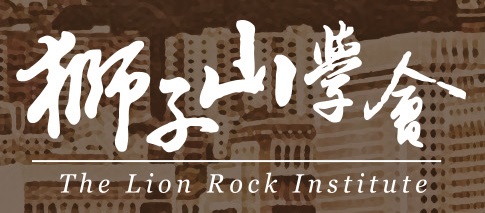Submission on Minimum Wage Commission’s Public Consultation on the Statutory Minimum Wage
Submission on Minimum Wage Commission’s
Public Consultation on the Statutory Minimum Wage
The Lion Rock Institute
June 6, 2018
We would like to thank the Minimum Wage Commission for considering The Lion Rock Institute’s view on this matter.
One of The Lion Rock Institute’s objectives is to draw the attention of Hong Kong people to government policies that will harm our city, not help it. We appreciate the Commission for recognising that one of the effects of the minimum wage is the loss of low-paid jobs. In our view the minimum wage should be reduced to HK$0, not increased, so as to reverse the damage suffered by victims of these regulations. While those damaged range across many groups, we believe the main victims are young people – the future of Hong Kong.
Increasingly, the younger generation has expressed its unhappiness about perceived lack of opportunities. The monetary policies of global central banks make it more and more difficult for them to afford to buy decent housing. The university degree that many believe will to help their future career, is becoming less and less valuable, and cannot be the solution for the less skilled. With growing competition from young people from all over China, is a further challenge to our youngsters. In such an environment, Hong Kong simply cannot afford to have policies that limit the choices of its younger generation.
Extensive research conducted by economists offer strong evidence that minimum wage leads to higher unemployment. Professor Richard Wong of the University of Hong Kong has examined empirical studies conducted in many different countries to conclude that increases in minimum wages reduce employment. Estimates of job losses in the US suggest that a 10% increase in the minimum wage would decrease employment of low skilled workers by 1-2%.
To give chances to all, from those with the broadest skills, to those with the fewest, it is essential that every avenue to build a career is open. But the minimum wage blocks avenues. It reduces opportunities of the younger generation by increasing the barrier of entry to jobs. For many young people, their lack in experience can compensated by more enthusiasm and drive. Entrepreneurs and small businesses have long hired inexperienced youngsters and helped them learn and gain experience. Some have done so through formal apprenticeship schemes, some with less formal arrangements. Typically, pay is initially very low, since the value added from the youngster is not sufficient to justify full pay. Yet the value can be huge to the young person who gets a start and training.
The cost of a salary is not the only deterrent to the creation of opportunity for young people. The administrative burden, and the risk of intentionally and unintentionally breaking the law, acts as a discouragement for companies to continue their summer internship programmes.
Specifically, anecdotal evidence suggests that many companies have shut down their internship programmes fearing running afoul of administrative measures that abut this sector of law. Formerly informal arrangements that gave students training, access to potential future employers and a learning platform have found it increasingly difficult to find internships. They simply don’t exist as companies decide the risk and administrative burden are too much trouble.
If the young person and the entrepreneur both agree on the terms of their contract, a free society should see no problem with this. Yet in Hong Kong the law forbids this arrangement. Minimum wage creates an economic disincentive for enterprises to hire young people as interns or for work experience. The Lion Rock Institute urges the Commission to allow adults freely to make employment contracts, with no limits on what they may agree on monetary compensation.
The Government often claims it wishes to encourage innovation and create a new generation of entrepreneurs. Yet minimum wage is a policy that stands in the way of this aim. As any entrepreneur will realize, most startups fail within the first few years. That creates uncertainty enough. The minimum wage adds further costs to their businesses at a stage when they can ill afford it.
While Hong Kong represents a small fraction of China’s GDP, adaptable young people will be of growing importance. The scrapping of the minimum wage and allowing a free market for small businesses to hire ambitious yet inexperienced youngsters will help create chances for them that would otherwise not exist.
The long-term effects of this policy have yet to be seen in Hong Kong, especially in the fairly stable economic conditions that have prevailed since this policy was implemented. But the negative impact on the poor, the young and the unskilled has been documented by research in many territories where similar policies have been implemented. We urge the commission to cut the statutory minimum wage to $0 before the harm this regulation will bring, permanently damages the future of our younger generation.

